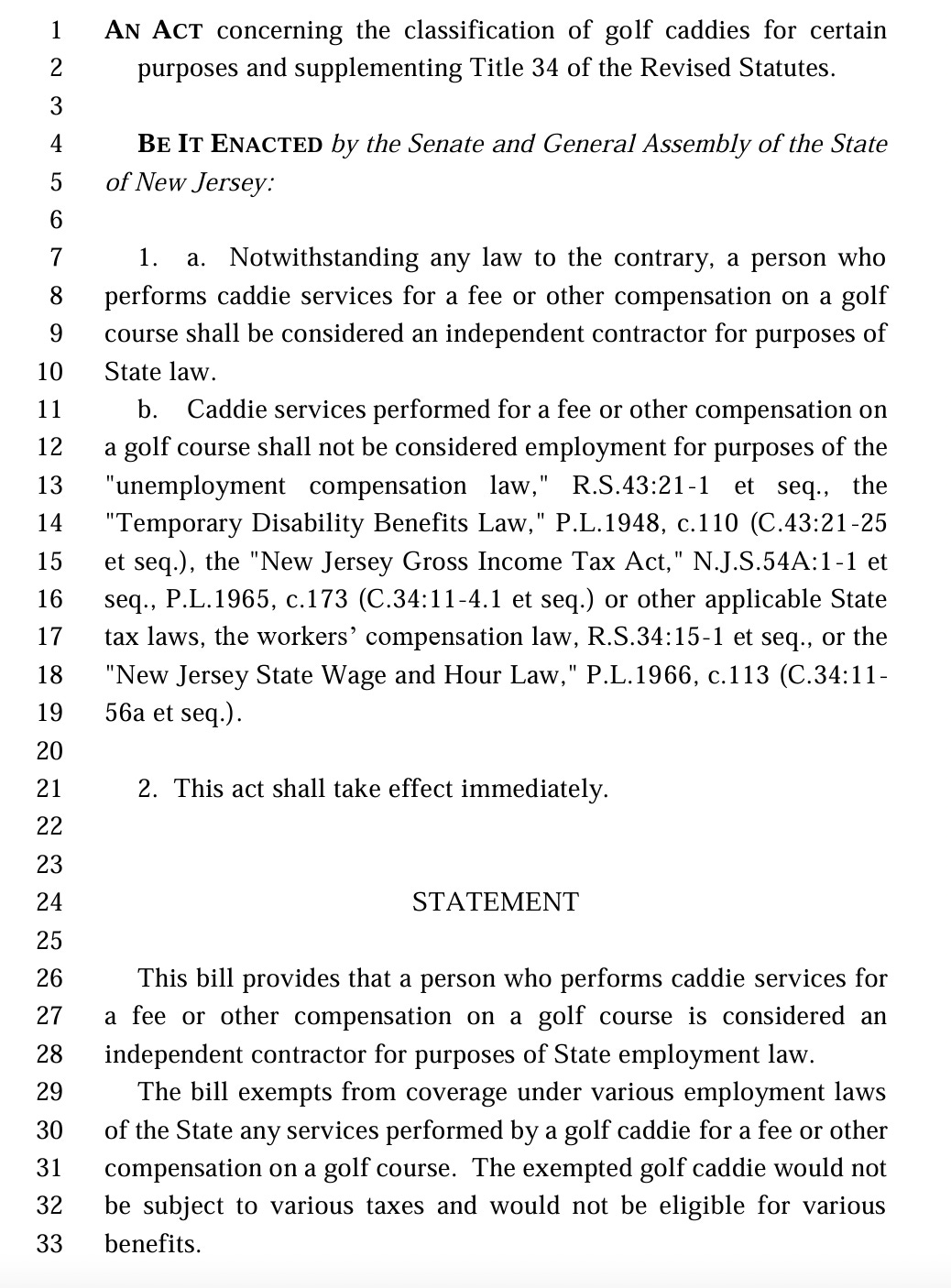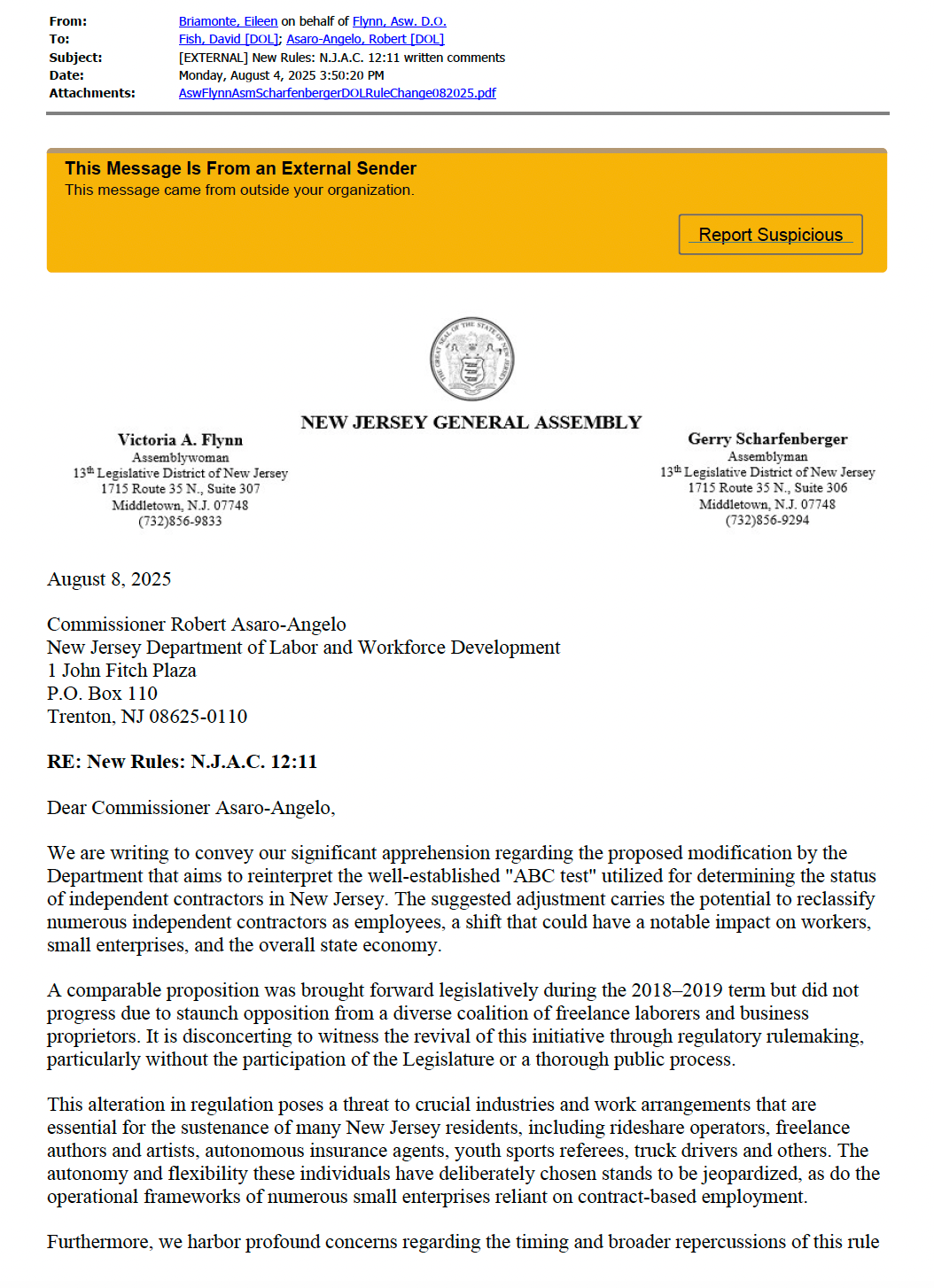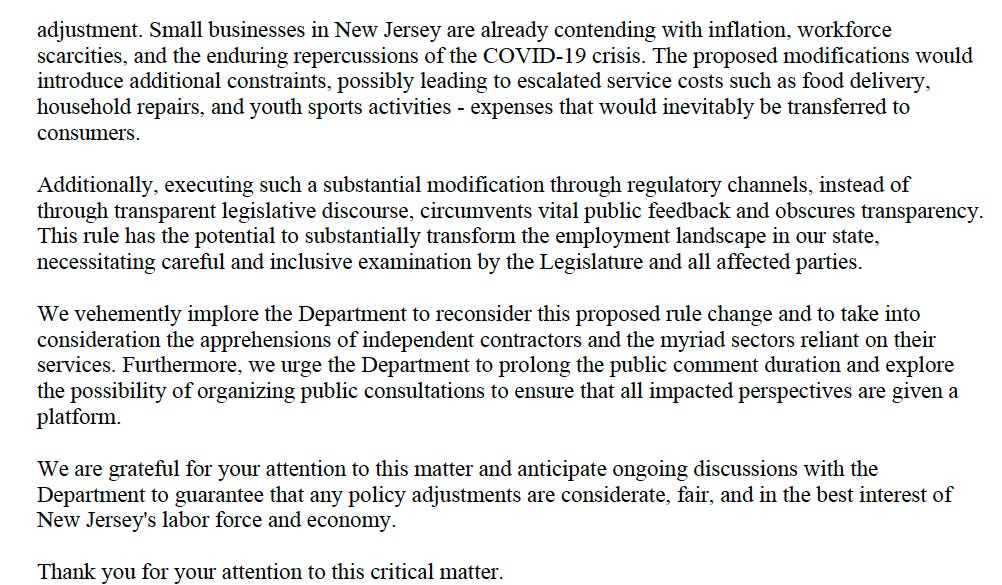'Significant Negative Consequences'
The New Jersey State Golf Association says the independent-contractor rule wouldn't create jobs; it would instead replace caddies with golf carts.
Golf caddies have been one of the most vocal professions trying to get out from under overly restrictive independent-contractor policy in New Jersey.
Yes, I know how odd that may sound—especially when freelance busting also targets attorneys, translators, truckers and providers of early intervention services for disabled toddlers, among hundreds of other professions—but the golf caddies have taken some big swings at the Trenton State House for years now, trying to break free from this regulatory mess.
In fact, they’ve made moves on par with those by real-estate agents. About two years after the failed freelance-busting bill in 2019-20, the New Jersey Legislature advanced an entire bill in 2021 to protect the status of golf caddies—and only golf caddies—as independent contractors.
I’m serious. The bill had only one page of text. Here it is, in its entirety:
That bill faced public opposition, including from me. I was among the independent contractors who went to a hearing and testified that our laws should protect all independent contractors, not just the caddies who carry lawmakers’ golf clubs.
Nevertheless, that bill made it unanimously through the Legislature before Governor Phil Murphy pocket-vetoed it in January 2022.
Which is a big reason why the golf caddies now find themselves stuck in the same sand trap as all the rest of us, trying to stop the New Jersey Department of Labor & Workforce from finalizing its proposed independent-contractor rule.
The New Jersey State Golf Association and the Western Golf Association jointly sent a public comment in opposition. It states:
“[T]he basis of our opposition is targeted on the significant negative consequences that the proposed rule would have on youth caddies performing a summer seasonal job—unless there are substantial modifications made to the proposed rule. The complexity and expanded subjectivity of the proposed rule (and resulting ambiguity), and the proposed rule’s explicit example of caddies as performing services typically within an employer’s usual course of business, will cause unintended harm to young workers like youth caddies, who have been operating successfully for over a century in the U.S. as independent contractors.”
The comment goes on to explain how, if caddies are reclassified as employees, jobs will not result. Instead, the associations wrote, golf-course managers will more likely replace the caddies with golf carts.
This outcome would eliminate opportunities for caddies to gain work experience and earn college scholarships, the associations wrote:
“The NJSGA and WGA have carefully monitored the health of caddie programs in New Jersey and across the country. Where states have sought to deem caddies ‘employees,’ or sought to impose ambiguous rules that call into question whether caddies can operate as independent contractors, it has resulted in a decline in the number of youth seeking to become caddies, as courses and clubs have become less willing to have robust caddie programs for fear of making a misstep in interpreting competing state and federal laws governing the role of a caddie. It is very easy for courses and clubs to just use golf carts in lieu of caddies—and it is a disservice to young caddies to limit their opportunities because of uncertainty in the law creating unwarranted potential legal exposure for courses and clubs.”
Here is the six-page letter from these golf associations in full:
Several Lawmakers Seem to Agree
New Jersey Assembly members Vicky Flynn and Gerry Scharfenberger sent a letter to Labor Commissioner Robert Asaro-Angelo that is included in the public comments the Labor Department released.
In that letter, Flynn and Scharfenberger noted a number of potential problems, including with youth sports activities:
“The proposed modifications would introduce additional constraints, possibly leading to escalated service costs such as food delivery, household repairs, and youth sports activities—expenses that would inevitably be transferred to consumers.”
Here is that two-page letter in full:
That August 8 letter followed a July 29 press release that Flynn and Scharfenberger released jointly with their fellow Republican, Senator Declan O’Scanlon, slamming the proposed rule change in general.
Scharfenberger is quoted in that press release, trying to protect all kinds of independent contractors:
“The proposed rule changes would be disastrous for anyone currently working as an independent contractor. There are many people who need the flexibility and freedom that working as an independent contractor gives them. Conversely, companies like the ability to hire individuals or small firms on a contract basis without encumbering more full-time employees. If these rule changes are implemented, it could literally cost people their livelihoods. This is a textbook example of government fixing what is not broken.”
I’ll have more tomorrow from the estimated 9,500 public comments that were filed expressing 99% opposition to New Jersey’s proposed independent-contractor rule.





